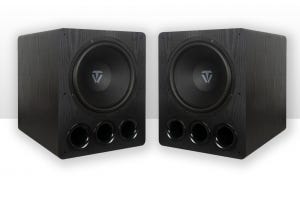
You may often hear the debate for receivers versus amplifiers. They are both essential components of a home theatre or hifi audio system – but what is the difference? Why do we need them, anyways?
In most sound systems, the audio signal must be processed and amplified before being sent to the speakers. This requires a processor or preamplifier, to process surround sound and sometimes boost the signal level from the source, and an amplifier, to boost the signal again and send it to the speakers. You can buy these devices separately, which is why they are also known as separates, or you can buy a receiver. An AV receiver is a processor, amplifier, and AM/FM tuner all in one. Contrary to what most audiophiles will tell you, one option is not always better. Each has advantages and disadvantages; the right one for you just depends on your specific needs.
Pros and Cons of AV Receivers
The argument for a receiver is pretty straightforward. Why buy two pieces of equipment when you can just buy one that accomplishes the same task? If you're a minimalist, the answer is easy: you don't. Receivers take up less space, require fewer cables, and almost always are the cheaper option. Additionally, receivers are updated by manufacturers more often, so it is easier to get the latest features at an affordable price. It also is easy to upgrade your receiver if you want other features or capabilities. Many people choose to replace their receiver every 2-3 years even.
The biggest drawback to a receiver is the limitations on sound quality and power output. Receivers are an economically efficient product, and as such, they cannot deliver the same power levels that a dedicated amplifier can without producing distortion or damaging the speakers. If you need more than 100W per channel or you have 4-ohm speakers, a receiver probably won't cut it.
In short, receivers are the practical option, and they deliver sound quality that is well beyond acceptable for most casual listeners. Unless you know you want a specific capability that separates can offer, or you have seriously power-hungry speakers, a receiver will probably do just fine. Odds are, if you're reading this article, you'll want a receiver.
Pros and Cons of Separates
Separates are usually preferred by serious audio lovers with heavy duty surround sound systems. Having separate circuitry for the processor and amplifier allows for greater processing quality, more control over the system, and higher amplifying power. Most importantly, you can choose the specifics of the amp or amps. Want to run five mono-block amps to each of your five speakers individually? Have at it. If you're serious about your setup, modularity and the ability to rearrange and control your devices is important.
Many audiophiles have a favorite amplifier for their own specific reasons. A high-end amplifier is a long-term investment and can last many years. Also, sometimes it's not just about getting what you need; you might prefer to have an amp that is excessively powerful for your speaker system, in case you decide to upgrade later down the road, or just for the security of knowing you can crank the volume as loud as you want without worrying about any clipping from the amp.
Another advantage is that separates are considered high end devices compared to receivers, so they are often esteemed in the music world. This means they are more likely to boast high quality materials, design, and construction and carry meaningful brand reputation. Of course, this also means you get what you pay for -- processors and amplifiers can be a serious investment, and one that is likely wasted on ignorant ears.
Additionally, it is not true that separates will universally deliver better sound quality than receivers. The quality differences are detailed and specific to your gear, so don't spend more on separates just because expensive equipment means it's better. Most consumer listeners are more than satisfied with their AV receivers and would prefer not to deal with the wires and hassle of having separate devices.





